Description
See Larger Picture
- Retail Price: $29.95
- Size: 7 x 9.25 x 2 inches
- Weight: 3LB 3oz
- Binding: Hardcover
- Pages: 1200
- Pub Date: 2005
- Publisher: Hendrickson Publishers
- ISBN: 9781598565737
Product Description
Everyone who studies the Bible wishes at some point that he or she knew the original Hebrew or Greek in order to better understand a difficult word or passage. TheExpository Dictionary of Bible Words gives readers the fruits of a working knowledge Hebrew and Greek without the years of language study.
The Expository Dictionary of Bible Words is more than just a handy and thorough alphabetical guide to the English translation of the Hebrew and Greek words used in both Testaments. There are thousands of articles, all arranged alphabetically by English word and coded to Strong’s numbering system for ease of use. Each article is divided into two sections — Old Testament (Hebrew) Words and New Testament (Greek) Words — with an entry for the Hebrew or Greek word along with its transliteration, translation, range of meaning(s), and comments on its use in different biblical contexts. A comprehensive system of cross-references aids the reader in finding different words as well as discussions of related words and themes.
Although reference works like Vine’s and Englishman’s have long aided Christians in understanding the nuances of different biblical words, the Expository Dictionary of Bible Words surpasses all available reference works. The “Additional Notes” to articles throughout the volume provide valuable and insightful information on the connections between Old and New Testament words and themes.
Reviews
“In a non-technical reference for pastors, teachers, and lay students of Scripture, Renn (language teaching, Inaburra School, Sydney but until 2001 Old Testament and Biblical Hebrew, Sydney Missionary and Bible College) offers comprehensive though not exhaustive analysis and discussion of both Old Testament Hebrew and Aramaic and New Testament Greek terms. The entries are arranged alphabetically by the English word, with sections on Old Testament then New Testament occurrences and uses of various terms so translated. Additional notes explain how the theme, concept, or doctrine shaped by the Hebrew terminology is fulfilled in the Greek vocabulary of the New Testament. The Hebrew and Greek words are indexed. There is some cross-referencing. The words are coded to the Revised Strong’s Numbering System.”
—Book News, Inc.
“There are numerous Old and New Testament dictionaries on the market, but the Expository Dictionary of Bible Words has some unusual features. It does have the typical analysis and discussion of Old Testament Hebrew (also Aramaic) and New Testament Greek. This 1,171 page volume also has an “Additional Notes” section that can lead to some extensive word studies. The dictionary reminds us that a more precise definition of a given word results when one learns both the lexical definition and a word’s literary usage. The text font is easy to read and the word being studied is in boldfaced type.”
—eclectichomeschool.org
“The dictionary is edited for pastors, teachers and lay students of Scripture as a tool to analyze OT and NT technical terms in Hebrew, Aramaic and Greek. It is organized according to English words. Each entry is subdivided into OT and NT words, which are presented in the Hebrew/Greek alphabet as well as with transliteration. Additional notes at the end of every entry explain the theme, concept or doctrine of Hebrew terms in the Greek vocabulary, especially in relation to the history of salvation. All entries are coded to Strong’s Concordance to simplify finding the word. Cross-references advise the reader to look up related entries. The indexes of Hebrew and Greek words (transliteration first, then Hebrew/Greek) with Strong’s numbers and the English entry are very helpful for researching.
“This dictionary has several advantages: it enhances a better canonical understanding of the Bible; the connections between the OT and NT can be studied easily; furthermore, the dictionary can be used by readers who are not experts in the biblical languages. They are enabled to get a better and deeper understanding of biblical thinking.”
—Journal for the Study of the New Testament
“When faced with a book of over 1000 pages the reviewer’s heart sinks. It will be impossible to do it justice in a few 100 words, yet here goes. For the last couple of months I have been road testing this dictionary, and I can report that it handles well. It may not be the nippiest book on the shelf, but if you want a robust 4X4 of a dictionary this is well worth investigating. This book enables you to cover a lot of uneven ground securely. To abandon the metaphor and turn to a case study. For a recent sermon I had the topic of the Old Testament Covenant with Noah. My main theme was to be the idea of covenant and so it was useful to have a book like this. It laid out the Old Testament word which is translated as covenant and its New Testament counterparts. The article then gave a clear meaning for the word in general and then described the main ways it was used. So we have
‘In relationship to the dominant usage of this term, berit may be defined as an intimate relationship between God and humankind, sovereignty initiated, maintained and fulfilled by God alone, and involving a commitment to life and death from both God and humankind’.
The main places it is used (out of over 300) are then laid out and the ways in which the idea is developed explained. The article then turns to the Greek equivalent diatheke, and explains how it builds on the Old Testament idea. The way in which the Old Testament and New Testament words are dealt with and the relationships between them are reflected on well, which enables a sermon to cross that line between Malachi and Matthew with some sense of cohesion.
What I read on ‘covenant’ both fitted with what I had been taught at college a decade ago, and filled it out. To help with referring to other works each translated word has a code number which matches that used in Strong’s Concordance. I can heartily recommend this dictionary to all who want to get behind a text before explaining it.”
—Anvil
“Designed as a nontechnical reference book for pastors, teachers, and lay students of Scripture, this dictionary offers a comprehensive analysis and discussion of both OT Hebrew (and Aramaic) and NT Greek terms. It is organized into entries by English words, with each main entry divided into OT and NT words. The “additional notes” explain how the theme, concept, or doctrine shaped by the Hebrew terminology is fulfilled in the Greek vocabulary of the NT, especially in relation to the consummation of God’s plan of salvation through Christ. It is intended to be an analysis of a redemptive-historical theme (a “motif study”) that has its origin in the OT and finds its completion in the NT. It examines over 7,260 Hebrew and Greek words, provides cross-references, is coded to the revised Strong’s numbering system. Renn is coordinator of language teaching at Inaburra School in Sydney, New South Wales, Australia. ”
—New Testament Abstracts
“Subtitled “word studies for key English Bible words based on the Hebrew and Greek texts”, this is a theological dictionary of both testaments. A typical entry is that on the lemma ‘Lion’; it discusses five Hebrew words and one Greek word denoting ‘lion’, and ends with an additional exegetical note on the metaphorical implication of ‘lion’ language. —A very useful scholarly resource.”
—International Review of Biblical Studies
“One of the benefits of this book is whenever an English word has both Hebrew and Greek equivalents, they are dealt with at the same time showing all the different meanings and nuances. There is a no section that ‘explains how the theme, concept, or doctrine shaped by the Hebrew terminology is fulfilled in the Greek vocabulary of the New Testament, especially in relation to the consummation of God’s plan of salvation.’ The price is also very good compared to many reference works that cost more than $40.”
—Equip
Editor Bio
Stephen D. Renn has served as the Head of Biblical Studies and Academic Dean at the Sydney Missionary and Bible College, lecturing in Old Testament and Biblical Hebrew (1986–2001). He was Principal of the Sutherland Shire Christian School from 2001 to 2003 and is currently Coordinator of Language Teaching at Inaburra School in Sydney, New South Wales, with additional responsibilities for the teaching of history and Bible.

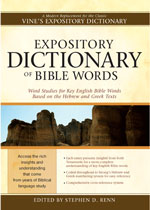
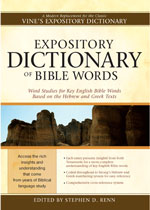
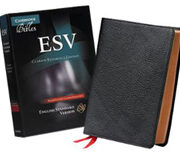
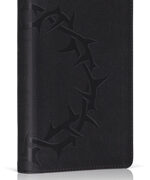
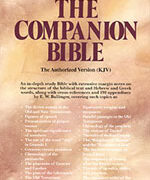
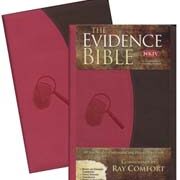

Reviews
There are no reviews yet.